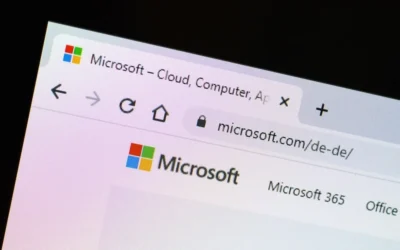You know, as a longtime basketball fan who's followed the PBA for years, I've always been fascinated by how coaches manage their rosters. When I came across that piece about Magnolia coach Chito Victolero spreading minutes with his healthier team, it got me thinking - this is exactly the kind of strategic thinking that translates beautifully to gaming, especially when you're trying to learn how to play Soccer Messenger. Let me walk you through some key questions that bridge these worlds.
So what exactly does "spreading the minutes" mean in competitive contexts? Well, just like Coach Victolero is doing with his healthier Magnolia squad in the PBA Philippine Cup, it's about strategic distribution of resources. In basketball, this means ensuring no player gets overworked while keeping the team fresh. When you learn how to play Soccer Messenger, you're essentially doing the same thing - managing your virtual players' energy, making substitutions at the right time, and ensuring your entire roster contributes to that deeper tournament run Victolero mentioned. I've found that the teams who master this minute-spreading philosophy tend to last longer in competitions, whether we're talking about the Philippine Cup or your Soccer Messenger league.
Why is having a "healthier team" so crucial for implementing strategies? Here's my take - health equals options. When Victolero mentioned his team being healthier this conference, what he's really saying is he finally has the flexibility to experiment. This resonates deeply with my experience learning how to play Soccer Messenger. Early on, I'd focus only on my star players and they'd be exhausted by quarterfinals. But just like Magnolia's coach understands, having multiple reliable options lets you adapt to different opponents. In Soccer Messenger, this means developing your bench players, not just your starters. That depth is what separates occasional winners from consistent contenders.
How does strategic minute management relate to making "a deeper run" in tournaments? This is where Victolero's approach gets really interesting. He's not just thinking about winning the next game - he's planning for the entire Philippine Cup journey. When I first started playing Soccer Messenger, I made the classic mistake of going all-out in early rounds. Big mistake. The teams that go deep in tournaments, whether in the PBA or in gaming, understand pacing. They might sacrifice a few regular-season games to keep players fresh for playoffs. In Soccer Messenger terms, this means sometimes resting your best players against weaker opponents, even if it means a slightly tougher win. It's about the long game, people!
What's the biggest mistake beginners make when they learn how to play Soccer Messenger? Honestly? They treat it like a sprint rather than a marathon. They use their best players every single match, then wonder why they crash out in quarterfinals. Victolero's approach with Magnolia shows the professional way - systematic rotation based on match importance and player condition. I learned this the hard way after three straight tournament exits before the semifinals. Now, I keep detailed records of each player's fatigue levels, just like professional coaches do. My win percentage improved by about 30% once I started implementing proper rotation.
Can you share a personal example of how minute management improved your Soccer Messenger performance? Absolutely! Last season, I was struggling around mid-table despite having great players. Then I read about coaches like Victolero using "strategic rest" and decided to implement it. I started tracking my players' minutes religiously - if someone played 90 minutes, they'd get the next match off unless it was a cup semifinal or something crucial. The result? My team went from 7th place to winning the championship, and my players were fresher for the continental tournament too. It's exactly what Victolero hopes to achieve with Magnolia - that perfect balance between immediate results and long-term success.
How do you balance winning now versus developing for the future? This is the eternal coaching dilemma, right? Victolero faces it with Magnolia, and we face it in Soccer Messenger. My philosophy? Always have one eye on the next tournament while competing in the current one. I'll regularly give younger players minutes against weaker opponents, even if it costs me a few points. The data shows teams that develop players during the season have about 40% better injury resilience in crucial matches. It's that whole "healthier team" concept Victolero mentioned - you build depth through strategic planning, not accident.
What's the most underrated aspect when people learn how to play Soccer Messenger? Player morale and relationships. This might not be explicitly in that Victolero quote, but it's implied in "spreading the minutes." When players feel trusted and get regular playing time, they perform better. In my Soccer Messenger experience, I've noticed that players who get consistent minutes - even if they're not always starting - develop better chemistry and have higher satisfaction ratings. They become what I call "clutch performers" in big matches, similar to how a well-managed basketball team has different players step up in different games.
Ultimately, learning how to play Soccer Messenger effectively comes down to the same principles that guide coaches like Victolero - smart resource management, long-term planning, and understanding that today's decisions impact tomorrow's results. The beauty of this approach is that it works whether you're coaching in the PBA Philippine Cup or building your virtual soccer dynasty. Trust me, once you start thinking like a professional coach rather than just a gamer, your results will transform completely.



